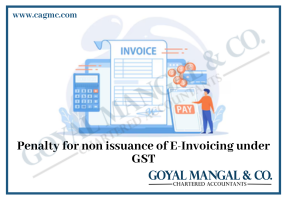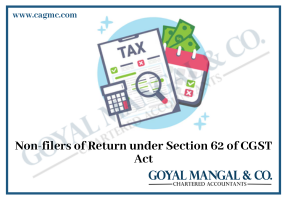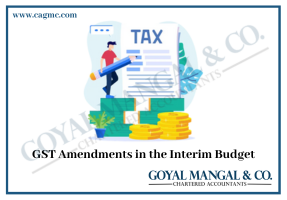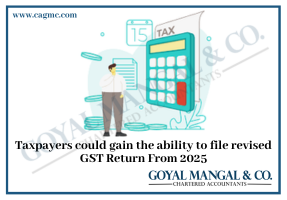
As per the GST regime, businesses are required to file periodic returns to report their sales, tax liabilities and purchases. Understanding the various kinds of GST returns and their respective due dates is essential for businesses to ensure timely. In this article, we will explore the various types of GST returns and their due dates. We will emphasize the importance of meeting these deadlines to avoid penalties or late filing fees and discuss any recent updates or extensions introduced by tax authorities, if applicable.
| Table of Content |
Who can file GST Returns?
In India’s GST system, GST returns can be filed by various entities and individuals, including:
- Composition Scheme Dealers: Businesses opting for the composition scheme under GST. That allows for simplified compliance and payment of tax at a fixed percentage of turnover, have specific return forms to file based on their turnover and registration type.
- Non-Resident Taxable Persons: Non-resident taxable persons who conduct business activities in India but do not have a fixed place of business are required to file GST returns.
- Regular Taxpayers: Registered businesses with an annual turnover exceeding the threshold limit specified by the government are required to file GST returns. They need to file returns based on their registration type (regular, composition, or Input Service Distributor) and turnover.
- Input Service Distributors (ISDs): ISDs, which distribute input tax credit (ITC) to their branches or units, are required to file GST returns to report their ITC distribution and related details.
- E-commerce Operators: E-commerce platforms or operators that facilitate supplies made by other suppliers through their platforms are required to file GST returns to report and pay the tax collected at source (TCS) on certain supplies.
Purpose of GST Return
Here are the key purposes of GST returns:
- Tax Assessment: GST returns provide a mechanism for tax authorities to assess the tax liabilities of businesses. By filing GST returns, businesses report their sales, purchases, and other relevant information. It is allowing tax authorities to verify the accuracy of the reported transactions and calculate the appropriate tax amounts.
- Tax Collection: GST returns facilitate the collection of taxes by providing a comprehensive record of the taxable supplies made by businesses. The returns include details of the tax amounts collected on sales. That enables tax authorities to track and collect the tax revenue owed to the government.
- Input Tax Credit Verification: GST returns also play a crucial role in verifying and reconciling input tax credits. Businesses can claim input tax credits for the GST they paid on their purchases, which can be offset against their output tax liability. By reporting their purchases and input tax credits in the returns, businesses provide the necessary information for tax authorities to validate the claimed credits and ensure they are legitimate.
- Compliance Monitoring: The filing of GST returns is an important compliance requirement for businesses. It helps tax authorities monitor compliance with GST laws and regulations. By analysing the returns, tax authorities can identify discrepancies, potential tax evasion, or non-compliance issues, allowing them to take appropriate actions such as audits, investigations, or enforcement measures.
- Data Analysis and Policy Formulation: GST returns provide a rich source of data for tax authorities and policymakers. The information collected through returns helps in analysing consumption patterns, revenue trends, and economic indicators. This data can be utilized for policy formulation, decision-making, and assessing the effectiveness of the GST system.
- Audit and Investigation: GST returns serve as a basis for conducting audits and investigations. Tax authorities may conduct audits to ensure the accuracy and integrity of the reported information. In case of discrepancies or suspected non-compliance, returns can be used as a reference point for initiating investigations or inquiries into the business’s tax affairs.
Types of GST Returns and their due dates
Here are some common types of GST returns and their due dates in India:
- GSTR-1: This return is filed to report outward supplies of taxable goods and services. It includes details of sales made by the taxpayer. The due date for filing GSTR-1 is the 11th of the following month.
- GSTR-3B: It is a monthly summary return that includes a summary of sales, purchases, and tax liability. The due date for GSTR-3Btax is the 20th of the following month.
- GSTR-4: This return is filed by composition scheme taxpayers quarterly. It includes details of supplies made, tax payable, and payment of tax. The due date for GSTR-4 is the 18th of the month following the end of the quarter.
- GSTR-5: It is filed by non-resident foreign taxpayers who do not have a permanent establishment in India but are involved in taxable supplies of goods or services in the country. The due date for filing GSTR-5 is the 20th of the following month.
- GSTR-6: It is filed by registered Input Service Distributors (ISDs). An ISD is an entity that receives invoices for input services and distributes the ITC to its branches or units. The due date for filing GSTR-6 is the 13th of the following month.
- GSTR-7: GSTR-7 is filed by taxpayers who are required to deduct TDS under GST. It applies to entities such as government departments, local authorities, and certain other specified persons who make payments to suppliers and deduct TDS. The due date for filing GSTR-7 is the 10th of the following month.
- GSTR-8: GSTR-8 is filed by e-commerce operators who are required to collect TCS under GST. It applies to businesses that operate electronic commerce platforms and facilitate supplies made by other suppliers through their platforms. The due date for filing GSTR-8 is the 10th of the following month.
- GSTR-9: It is an annual return filed by regular taxpayers. GSTR-9 includes details of all supplies made, ITC availed, and tax paid. The due date for GSTR-9 is typically December 31st of the subsequent financial year.
- GSTR-9C: This return is accompanied by the audit report and is filed by taxpayers whose annual turnover exceeds a specified limit. The due date for GSTR-9C is also typically December 31st of the subsequent financial year.
- GSTR-10: It is filed by taxpayers who have applied for the cancellation of their GST registration. It applies to individuals, businesses, or entities that have ceased their business operations or no longer meet the criteria for GST registration. The due date for filing GSTR-10 is within three months from the date of cancellation or date of cancellation order, whichever is later.
Takeaway
Through the article, we were able to understand the types of GST returns, meeting the due dates, and utilizing online filing systems. Along with that maintaining compliance, and contributing to a fair tax administration, businesses can navigate the complexities of GST return filing. It ensures their smooth operation within the GST framework. By filing GST returns accurately and on time, businesses contribute to a transparent and efficient tax system while avoiding penalties and non-compliance issues.







